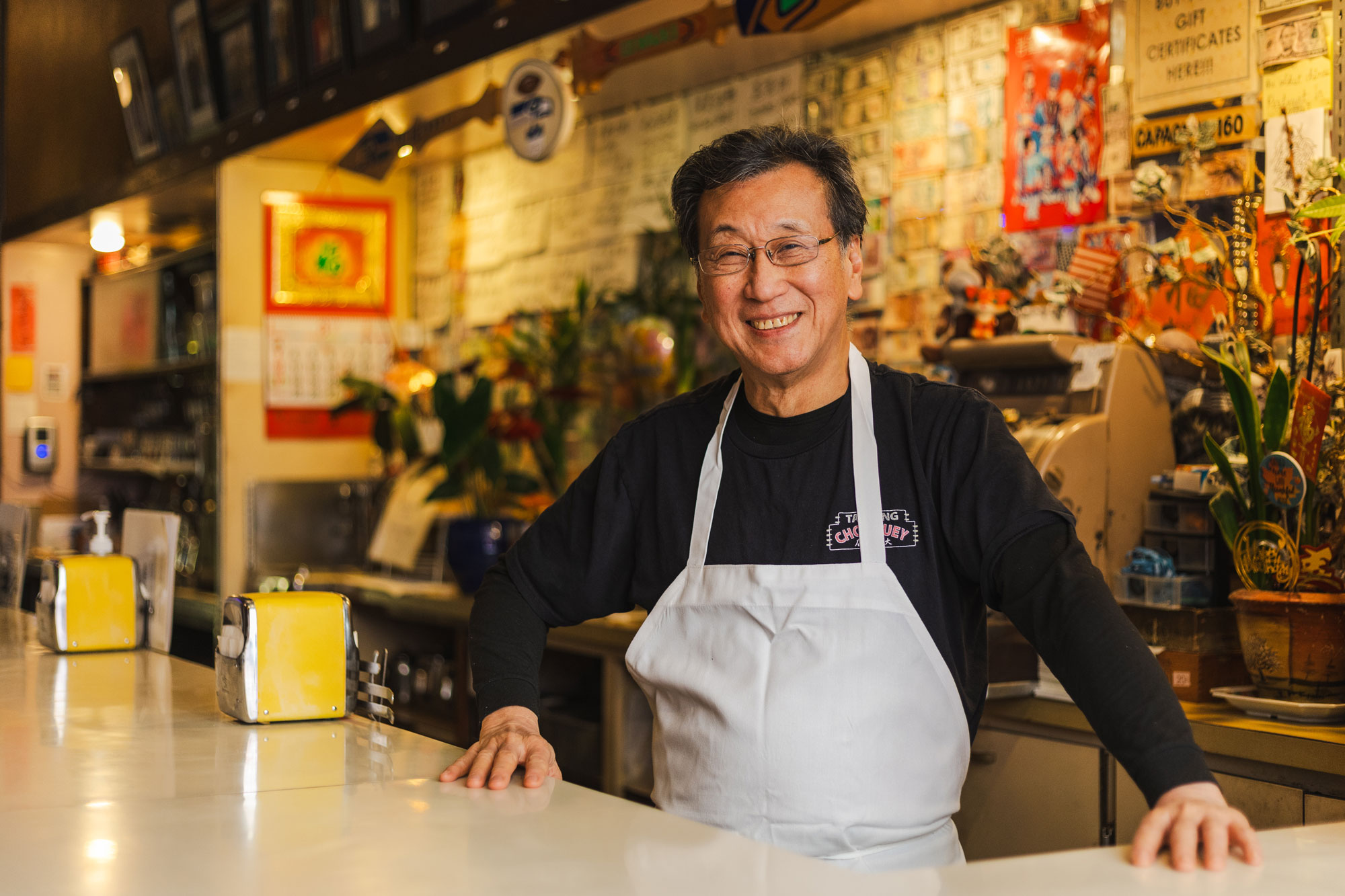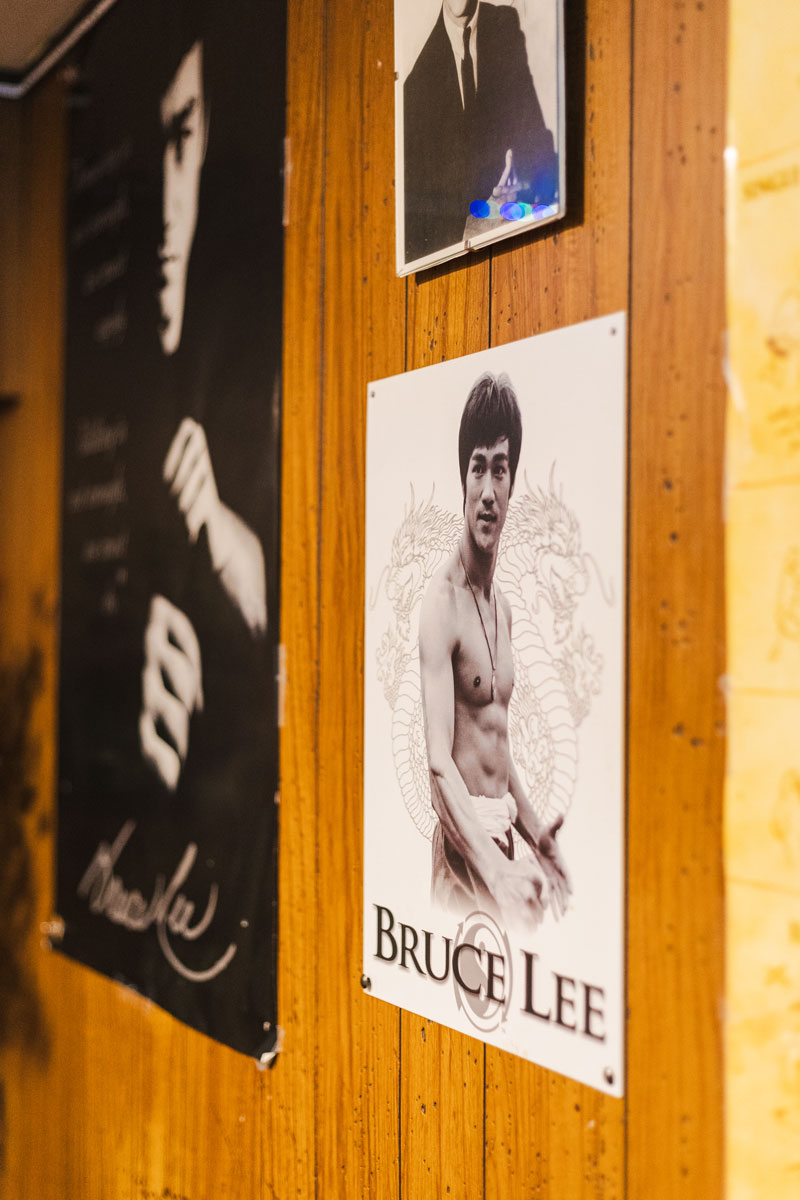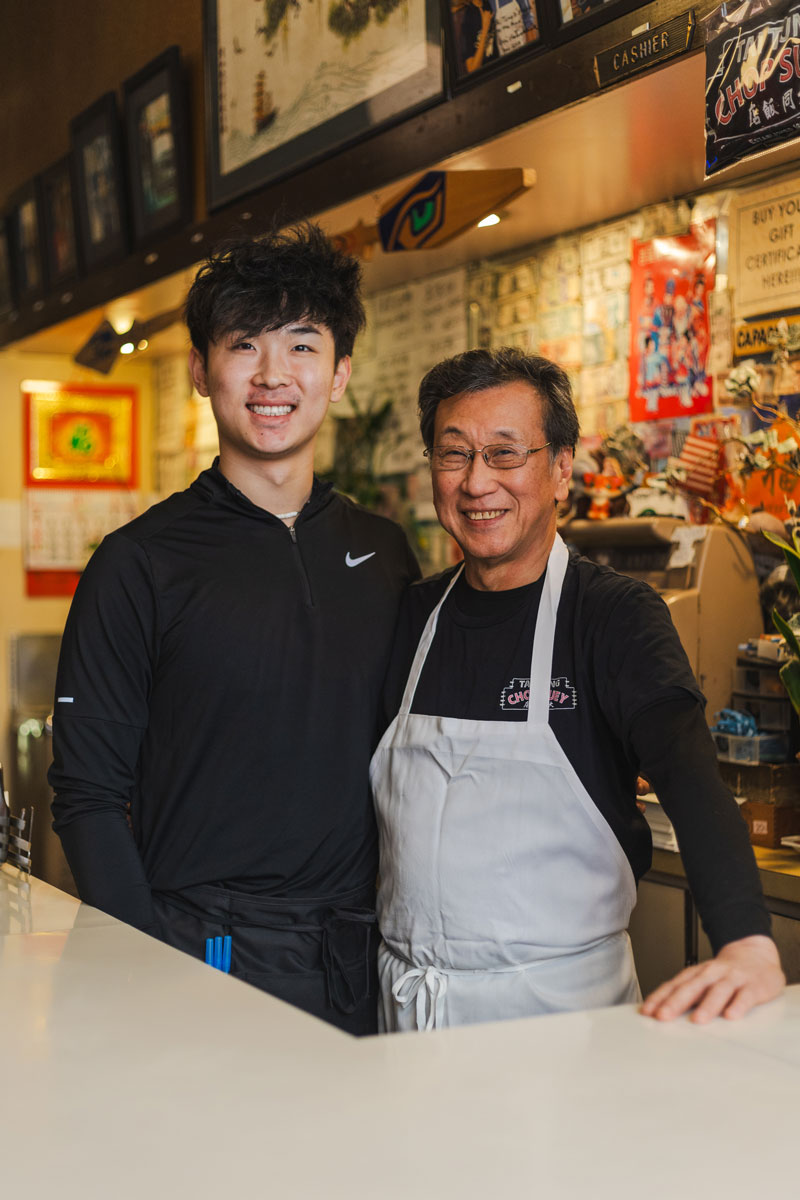
Comfort food Comfort food Comfort food
Tai Tung owner Harry Chan talks about his experience at the oldest Chinese-American restaurant in Seattle.
By Shin Yu Pai | Photos by April Hong | June 2024 issue
Bruce Lee, Anthony Bourdain, Olympic athlete Apollo Ohno and Bill Gates have all dined at Tai Tung, Seattle’s oldest Chinese-American restaurant. And so have many of the rest of us. Owned and run by Harry Chan, ’76, since 1979, and by his family since 1935, this eatery is a beloved fixture of the Chinatown-International District.
Chan’s grandfather, who had immigrated from Southern China, opened a restaurant in Seattle in the 1930s. It quickly became a popular neighborhood spot. When 20-year-old Chan arrived from Hong Kong in 1968, his family brought him to Tai Tung for his first American meal and to familiarize him with the local Asian American flavors. “It’s a little bit different than Chinese food,” says Chan. “It was the first time I had a fortune cookie.” Created for an American palate, the dishes included chow mein, chop suey, sweet and sour flavors and recipes adapted away from Chinese ingredients and seasonings and toward what was locally available.
Apart from the food, Chan noticed other differences from eateries back home. Hong Kong restaurants crammed tables together family style, with shared seating. At Tai Tung, the restaurant is laid out with booths and smaller stand-alone tables to provide the customers more privacy. He was intrigued by the small buttons on the wood-paneled walls of Tai Tung’s dining room, which could be used by customers to summon a server. Later, Chan disconnected them because they were irresistible to young children. But he kept them in place as a reminder of the past.
- Posters on the wall memorialize Bruce Lee, who was a regular at Tai Tung.
- Harry Chan smiles with his grandson Brenden Chan, who sometimes helps out at Tai Tung.
Chan started working at Tai Tung in the 1960s and has held every possible job from washing dishes and mopping floors to prepping food in the kitchen and tackling the front-of-house tasks like waiting tables and bartending, all while supporting his family. After starting out at community college, Chan enrolled at the UW. He juggled school, work and parenting, adjusting his class schedule to be done by noon. He then worked at the restaurant from lunchtime to 8 p.m., when he’d head home for a night of studying. Chan earned a degree in building construction. His son Evan Chan, ’94, and his grandson Conner Chan, ’22, also graduated from the same program.
Over its many decades, Tai Tung’s menu stayed constant. Customer favorites include chicken wings, egg foo young, fried rice, oyster sauce beef, chow mein, almond chicken, sweet and sour prawns and chop suey. Behind the counter, a wall of daily specials written in Mandarin and English offer items to tempt Asian restaurant-goers—dishes with bitter melon, pig’s feet, ox tail and steamed fish—foods that are more representative of the flavors immigrants might miss from home.
Customer favorites include chicken wings, egg foo young, fried rice, oyster sauce beef, chow mein, almond chicken, sweet and sour prawns and chop suey.
As the restaurant approaches its 90th anniversary, Chan reminisces on some of his more famous visitors. A television producer and crew from the CNN show “Parts Unknown” came to visit in 2017, toward the end of a late-night shift. Chan wasn’t fully paying attention and pocketed the producer’s phone number without thinking much about it. “Five days later, she came in with Anthony Bourdain,” says Chan. “I didn’t really know about him that much. I was surprised. We were honored to have him come here.” Bourdain (who died in 2018) feasted on roast duck, ma po tofu, kung pao chicken, sweet and sour pineapple chicken, pea pods, string beans and almond chicken.
While visitors will often find Chan behind the counter greeting customers or cooking in the kitchen, he has enjoyed traveling lately. A few years ago, he attended the 150th anniversary celebration of the completion of the Transcontinental Railroad at Promontory Summit in Utah. Chan and his dear friend Al Young, ’77, drove to the ceremony to watch Young’s older sister, historian Connie Young Yu, deliver the opening address. Young’s great grandfather was one of the thousands of Chinese railroad workers who laid the track and united the country by rail. “On that day, the Chinese were finally recognized for their contribution,” says Chan.
Now 76, Chan plans to continue working at Tai Tung for as long as he can. “I’d love to be able to celebrate our 100-year anniversary,” says Chan. “I hope to see the C-ID continue to grow into a neighborhood for people to visit and live here while maintaining its history. We are fortunate to be part of this great place that supports the Asian American community.”

